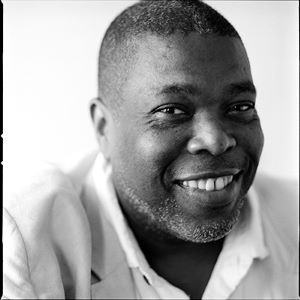The Katherine Anne Porter Literary Center Celebrates 20 Years with an Evening with Associate Professor Hilton Als

The Katherine Anne Porter Literary Center hosted Associate Professor Hilton Als in honor of the center’s 20th anniversary. Als is currently the Presidential Visiting Scholar at Princeton University. His bold and original work as the theatre critic for The New Yorker earned him the Pulitzer Prize for Criticism in 2017. Als is also the author of The Women (Farrar, Straus, & Giroux, 1996) and White Girls (McSweeney's, 2013), both works that explore meditations on gender, race, and personal identity.
Among the women whose Als’s work has included is Katherine Anne Porter, a 20th century writer most known for her short stories. Created in her honor, the KAP Literary Center hosts regular readings as part of its Visiting Writers Series—a staple for the Creative Writing MFA students at Texas State University as well as the local community. Jeremy Garrett, who hosted the event, is the current Writer-In-Residence at the Katherine Anne Porter house, which is located in Kyle, Texas in Porter’s childhood home.
As Garret said, “The women Hilton writes about, even if they are dead, are given a fresh life and perspective.” This is apparent in Als’s 2009 essay, “Enameled Lady,” which explores the history, writing, and legacy of Katherine Anne Porter. When asked where his fascination with Porter originated, Als recalled encountering Porter as he read the work of Carson McCullers, another prominent Southern female writer. Reading Virginia Spencer Carr’s biography of McCullers, Als was struck by a section that described how McCullers fell in love with Porter while the two were both at Yaddo, the artists’ community located in NY. “That led me, probably more concretely, to read Katherine Anne’s stories, and I was fascinated by her connection to younger, Southern writers,” notably, the queer writers that Porter championed.
Unlike the majority who would follow her, Porter was a Southern writer who rarely wrote about the South. Rather, as Als discussed, “her point of view was that of a displaced person...Someone who was, I don’t think, trying to escape her southerness or Texas-ness, so much as she was trying to understand it in relation to other things.” The story “Noon Wine,” from Pale Horse, Pale Rider, stands out to Als as the most “Texas” story Porter published, and also, perhaps, the most autobiographical, as it delves into the smallness and poverty of the world Porter grew up in.
Porter’s story of the 1918 influenza, called “Pale Horse, Pale Rider,” has recently reemerged as a piece that is deeply resonant for the current moment. Als read from the beginning before diving into a discussion of it. The story, like many, displays Porter’s mastery as a writer, especially in the short form. Porter had an entire career as a journalist and reviewer before coming to fiction writing, and her control is evident from her first story onward. “She’s a wonderful example of what we can do with our lives if we take hold of them at the right time,” Als said.
Als also discussed what initially inspired him to write: “I come from a very powerful family of women. I have four older sisters, and I always say that I began writing so that I could get a word in edgewise.” Als considers his mother his first editor, as he often shared his writing with her as a child. Speaking about writing, Als said, “I just couldn’t believe you had this power, this magical power, to express yourself through language. It was really a revelation for me, and I’m so lucky to have found it.” Als recently returned to writing about his personal history in his June 2020 essay “My Mother’s Dreams for Her Son, and All Black Children.” The idea for the essay began to germinate at a moment when the pandemic was at its worst in NYC and the recent demonstrations and protests had begun. “It was like being in a world that was rapidly changing, and in that newness I remembered the old world that I had grown up with.”
During the Q&A, one student asked Als about the relationship between the imagination and research in his own writing process. For Als, research feeds his imagination. When he discovers something new in the writing, or about the writer he’s researching, that experience of discovery moves him. “[Research] is an amazing tool, for me, to use as a kind of jumping off point...It doesn’t mean that you have to be particularly hindered by the facts, but you can let the facts work for you, and work on your imagination.”
Als is currently working on an essay for The New Yorker about the work of visual artist and portraitist Alice Neel.